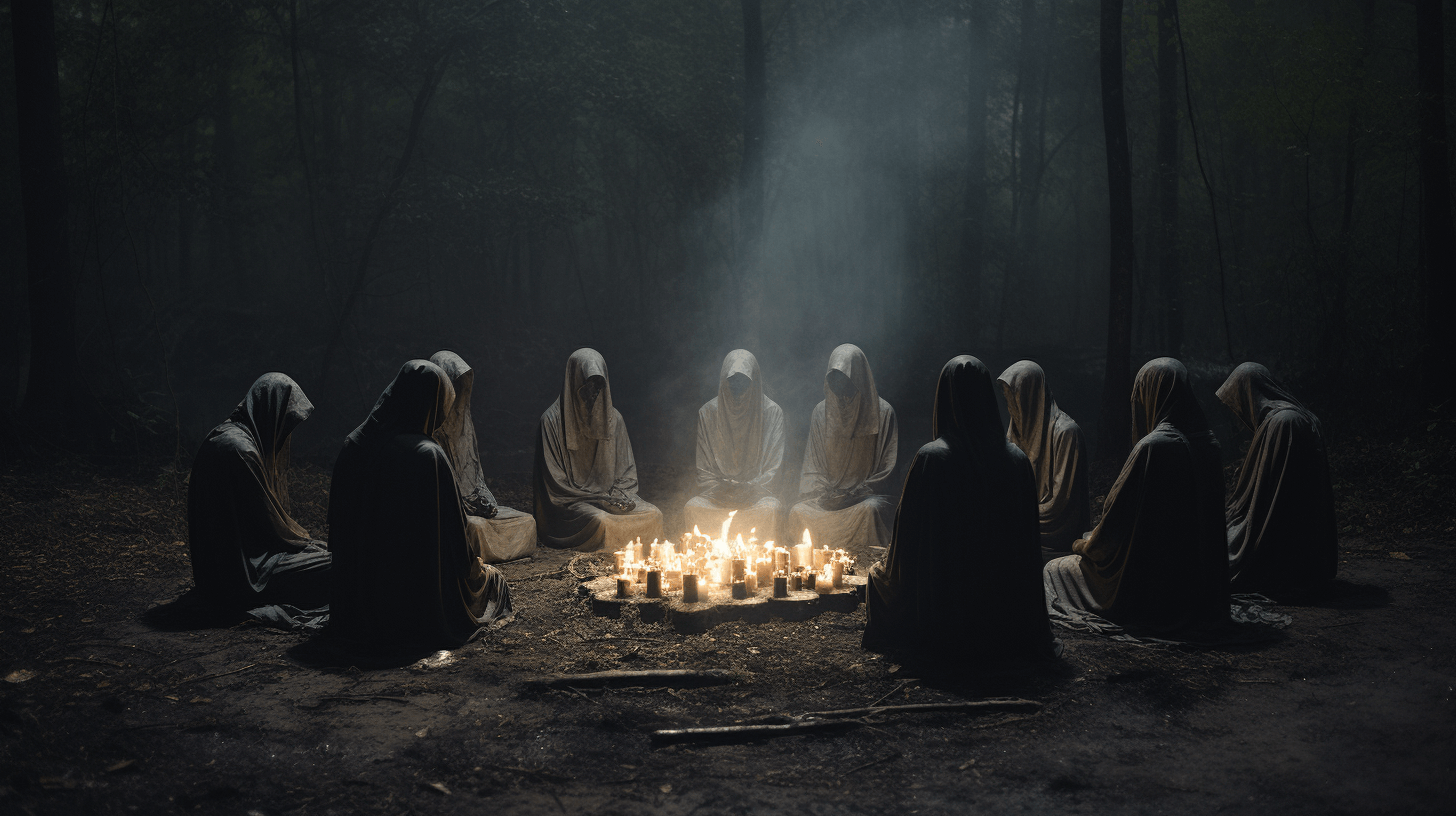Science
The Underwater Cataract Powering Earth: What Happens if it Stops?
02 March 2026

“Today, both extremist political factions and sects, presenting a reductive worldview, are influencing the global narrative. As our understanding of the world becomes increasingly muddled, we yearn for straightforward answers,” states Dariusz Pietrek, a psychotherapist with expertise in sect-related studies.
In June, bodies of over 400 members from the International Church of Good News were found in the Kenyan village of Shakahola. They had starved to death, lured by their sect leader’s assertion that extreme fasting would usher them into Jesus’ presence. Were you taken aback by this revelation?
Not really. I suspect we’ll encounter another shocking story of this nature in a few years.
This incident brought to mind the notorious mass suicide of Peoples Temple followers. However, that was 45 years ago. We’ve seen similar tragedies since then. Haven’t we taken any lessons from them?
The tragedy of the Jim Jones cult deeply shocked the global community. It is harrowing that almost a thousand individuals lost their lives, many under duress, unable to resist consuming poison. These individuals were captivated by Jones’ ideologies, placing unwavering trust in his guidance. This catastrophe prompted professionals in psychology and sociology to delve into understanding how one’s psyche can be manipulated to such an extent that it overrides the innate survival instinct.
Unfortunately, similar incidents have occurred since. Notable examples include the Order of the Solar Temple, spanning Switzerland, France, and Canada, and Shoko Asahara’s Aum Shinrikyo, responsible for the Tokyo subway attack. These groups, epitomizing millenarian cults, held convictions about an impending apocalypse, the second coming of Christ, and a looming conflict affecting only their members. They believed that these cataclysmic events necessitated alignment with divine will.
However, the notion of ritualistic suicides or murders is not a modern phenomenon. Historical practices by civilizations such as the Mayans or Aztecs, conducted to appease their gods, bear similarities to contemporary occurrences. It is not the invention of belief systems that is innovative, but rather the evolution of the central tenets around which these systems revolve.
On a personal note, my extensive encounters with various millenarian narratives have rendered the “end-of-the-world” scenarios somewhat commonplace. Stories about an enormous comet on a collision course with Earth, the potential eruption of the Yellowstone supervolcano, or the wrath of Pachamama, the revered Incan earth goddess, are topics I now find less remarkable.

An expert on cults recently suggested that today’s sects bear little resemblance to the old groups that isolated themselves from society and fervently followed fanatical prophets. They say modern methods are more discreet and harder to spot.
I’d argue a different perspective. Such groups still persist, though perhaps on a diminished scale. Consider, for instance, an organization that offers meditation sessions. Participants follow a healthy diet, confront their fears, and might even participate in activities like walking on burning coals. It wasn’t shocking when a woman approached me, saying, “My husband left our family and business to live in a commune.” Though such a group might consist of around twenty members, not in the thousands like Jim Jones’s congregation, the dynamics are quite similar. Members live together, undergo constant supervision, and engage in multiple daily meetings — classic indicators of brainwashing. Over time, these individuals become highly susceptible to influence.
We often link cults with religious themes: transcendence, God, heaven, the apocalypse, even hell. However, this isn’t always the case. Some sects are therapeutic in nature, where individuals place unwavering trust in so-called healers or shamans. Companies, too, can exhibit cult-like behaviors. Amway, for example, capitalized on Poland’s economic struggles in the 1990s, promising life transformations and substantial financial gains for modest work.
Can anyone be manipulated?
Cults deploy tactics so refined that many of us might be vulnerable. We all seek something. We all have unmet needs. Some desire knowledge, others grapple with ethical dilemmas, and many seek spiritual enlightenment. The current crisis within the Catholic Church has also opened new avenues of exploitation. While many are distancing from the Church, their innate need for community remains intact. This predisposes them to the allure of groups such as Jehovah’s Witnesses…
…who turn to ‘love bombing’ to fill this void?
Yes, it’s a systematic approach commonly employed by most cults. They start with appealing arguments and often leave behind their magazine, “The Watchtower,” suggesting, “Give it a read if you wish.” When a Jehovah’s Witness is welcomed into someone’s home—which happens frequently due to people’s spiritual curiosity—an invitation to a Kingdom Hall meeting soon follows. At these meetings, attendees might be greeted with, “It’s great to see you! We’ve heard much about you. Witness our genuine community for yourself.” A key step that often follows is the ritual of baptism. Simultaneously, newcomers are introduced to the cult’s ideology, which emphasizes the approaching Armageddon and the belief that the world is the Great Babylon. To be saved, one must detach from it. This leads people into a binary worldview, embracing the notion of “If you’re not with me, you’re against me.”
In Gestalt psychology, this phenomenon is termed ‘figure-ground reversal.’
Exactly. It represents a major shift in one’s thinking pattern. Individuals undergo significant internal transformations. Their original identities are disassembled, replaced by a new set of beliefs. This often results in extreme views, driven by the belief that “only our way is the true way.”
Erich Fromm discussed this in “Escape from Freedom.” Many are drawn to a simplified world of semi-truths, finding comfort in its clarity. This means following set rules and escaping personal decision-making.
Such a structure brings stability. This is why people often look for authority figures to delineate right from wrong. In fact, many shift loyalties from one authority to another throughout their lives, avoiding independent thought. This prevents them from cultivating a critical mindset, asking challenging questions, or seeking clear answers. In cults, members often hear, “You’ll understand as you progress further.” Surprisingly, for many, this is satisfactory.
Yet, I’m concerned about the future. Did you know that making calls is the least used feature on teenagers’ phones? And that 70% of them are apprehensive about phone calls with a person they don’t know? What does that reveal about our social competencies? Here’s another instance: in a class of 60 students, when I ask, “Who here reads books?”, merely five to seven respond. To the rest, I remark, “You’re prime candidates for manipulation.” Understanding the world extends beyond mere vocabulary and conceptual knowledge. Cults lure people with their enigmatic language. I fear we’re transitioning into an era where radical political factions and cults, with their rudimentary views, will shape our perceptions. As our world grows more complex, the allure of simplistic answers grows stronger.
I’m convinced that many individuals yearn for their freedom and are determined to break away from cults.
A few years ago, a young lady repeatedly approached the Silesian Center for Information on Cults. Desiring to escape a cult, she simultaneously grappled with feelings of betrayal towards the organization. Her overwhelming guilt held her back until her fifth or sixth visit. Her journey to recovery started with reconnecting to her former relationships. However, many find it challenging to make that transition. They don’t have a support system to guide them back to their previous life, or in some cases, there’s no former life to return to. For instance, Jehovah’s Witnesses prohibit contact with former members, even if that member is a close family member like a mother. Such rules dictate that you shouldn’t even acknowledge her in public. I’ve encountered cults that isolate individuals from their families, offering them jobs, housing, and a new social circle, sometimes introducing a new partner. Entwined in this intricate web, one might see the toxicity of the supposed paradise. But doubts emerge: “How can I go back to my family after leaving them and even signing away my property to the cult?” Another layer to breaking free from a cult is reconstructing one’s identity. The influences that gradually undermined their core beliefs and filled them with nonsensical ideas persist. Without a supportive network, there’s a real risk they’ll be lured by another group peddling a “bright, new future.”
Dariusz Pietrek is a psychotherapist and educator, and a member of the Polish Psychiatric Association. His expertise lies in assisting individuals ensnared in cults. He has dedicated his career since 1992 to the study of cults and new religious movements. He founded the Silesian Center for Information on Cults in Katowice.
Read more on Holistic News